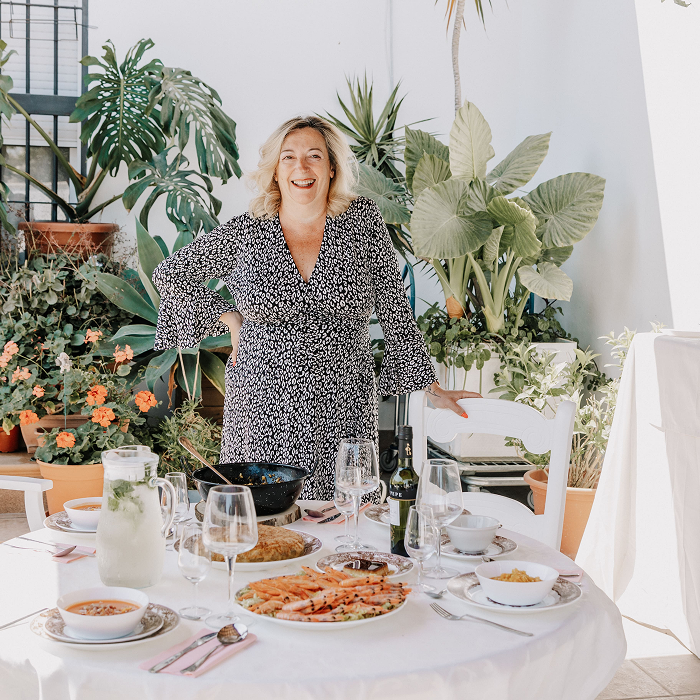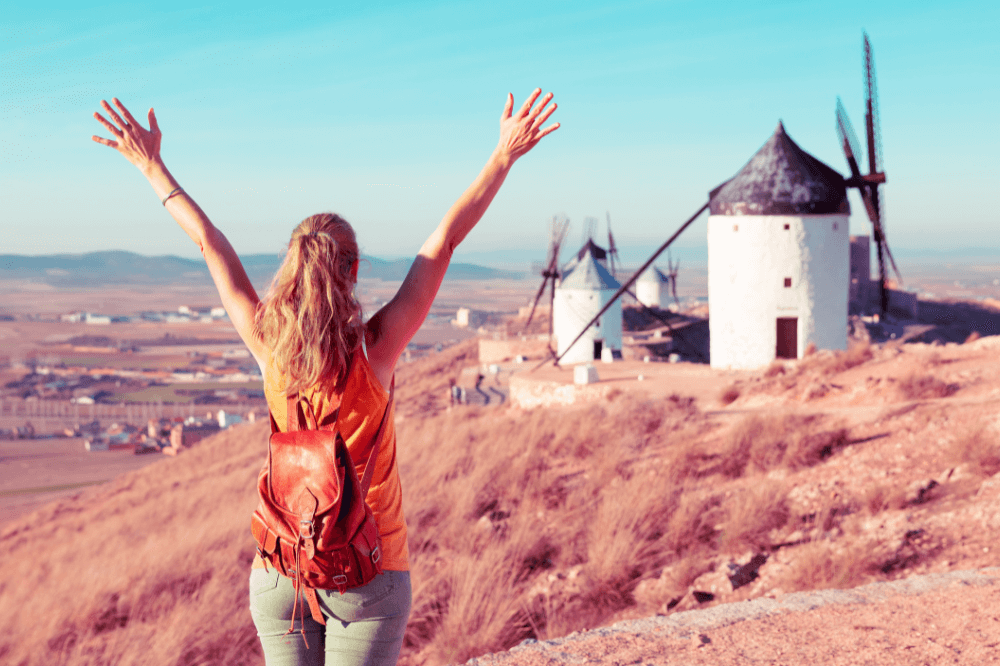Planning a summer vacation in this country can raise some questions. How can you avoid the scorching heat? What should you know about the culture and local customs? How can you make the most of your budget and avoid “tourist traps”?
We understand that you want to enjoy to the fullest, without any setbacks, and that you’re looking for the most practical information to make your experience smooth and memorable.
That’s why we’ve compiled a series of tips for visiting Spain that will help you navigate the particularities of this season and fully enjoy everything this destination has to offer.
Pack your suitcase, because with this information, your summer adventure will be as comfortable as it is exciting.
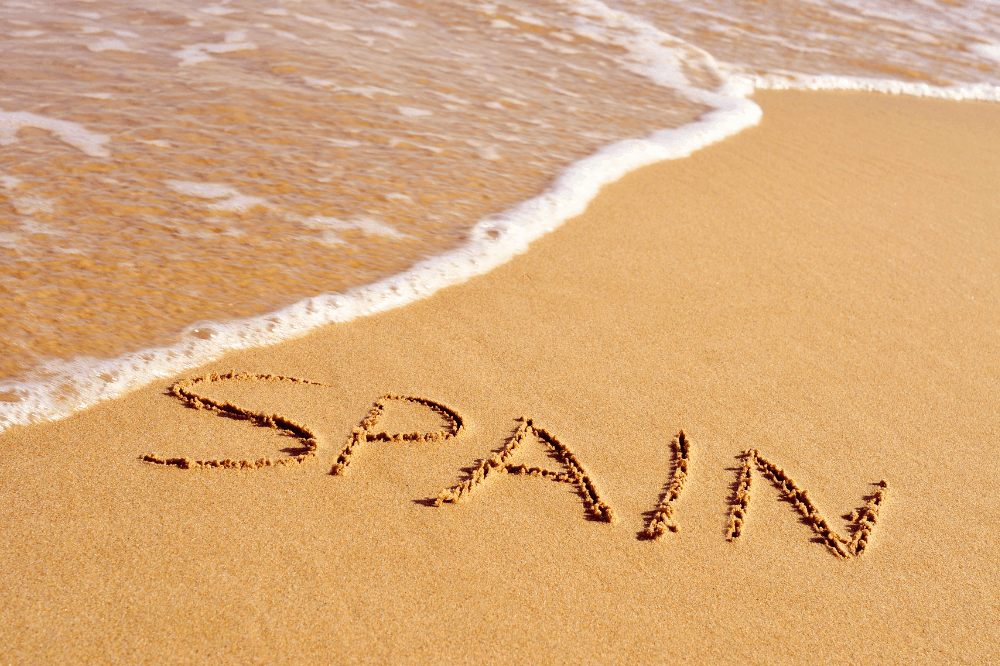
20 Advices for Tourists in Spain during summer
Below, we share the keys so that your only concern is enjoying the cultural richness, delicious gastronomy, and stunning landscapes that await you.
1. Book in Advance
Planning your trip ahead of time is crucial, especially if your vacation coincides with the summer months.
By booking in advance, you not only ensure availability at the places you want to visit, but you can also access better rates and deals that quickly sell out as high season approaches.
2. Be Prepared for the Heat
Summer is characterized by high temperatures, especially in the inland and southern regions. That’s why it’s essential to properly prepare for these weather conditions in order to enjoy your stay and avoid any setbacks.
Make sure to pack light, breathable, and light-colored clothing, preferably linen or cotton, which will help you stay cool throughout the day.
3. Choose the Right Destination for You
The peninsula offers a wide variety of options for summer travelers, and choosing the right place can make a big difference in your experience.
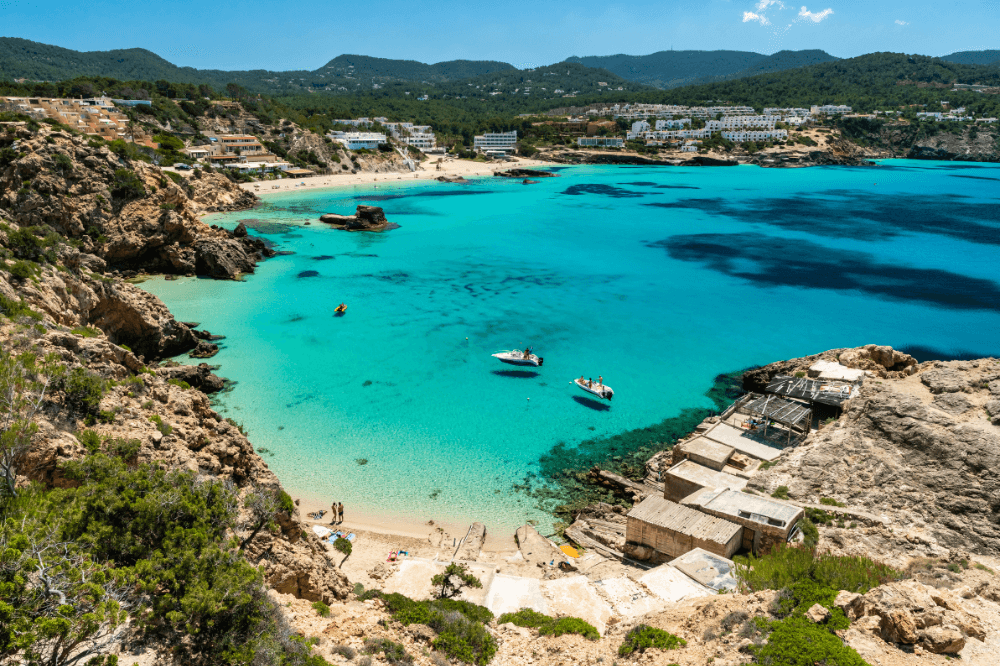
While coastal regions are ideal for those seeking sun and beach, with lively cities and towns, inland or mountainous areas can be an excellent alternative to escape the heat and enjoy nature or more relaxed cultural exploration.
Consider your personal preferences and the type of vacation you want to have.
4. Card and Cash: The Perfect Combination
Although most establishments in this country accept card payments, it’s good practice to always carry some cash. This is particularly useful in smaller towns, local markets, or for small purchases, like a coffee in a traditional bar or an ice cream from a street stand.
Also, some taxis or public transport services, although fewer and fewer, may prefer cash, and having change makes these transactions easier.
5. Tipping Isn’t Mandatory, But…
In this country, unlike others, service in restaurants and bars is usually included in the final price, which means tipping is not mandatory.
You won’t feel pressured to leave one, and service staff don’t expect it as a fundamental part of their salary. However, if you received excellent service and want to show appreciation, leaving a small amount is a welcome and appreciated gesture.
6. Lunch and Dinner Are Served Later
One of the cultural aspects that most surprises visitors is the meal schedule. Here, both lunch and dinner are enjoyed significantly later than in many other countries.
Lunch, the main meal of the day, is usually served between 2:00 and 3:30 pm, while dinner doesn’t begin until well into the evening, typically between 9:00 and 10:30 pm, and even later in summer, especially in southern cities.
7. Swimwear Only at the Beach
It’s important to remember that swimsuits are designed for use at the beach or pool.
Outside of these specific environments such as city streets, restaurants, shops, or even public transportation. It’s not appropriate to wear them.
Dressing appropriately is a sign of respect for local customs and helps maintain a pleasant atmosphere for everyone, both residents and other visitors.
8. You Can Drink Tap Water
In general, tap water in this country is drinkable and safe in the vast majority of regions.
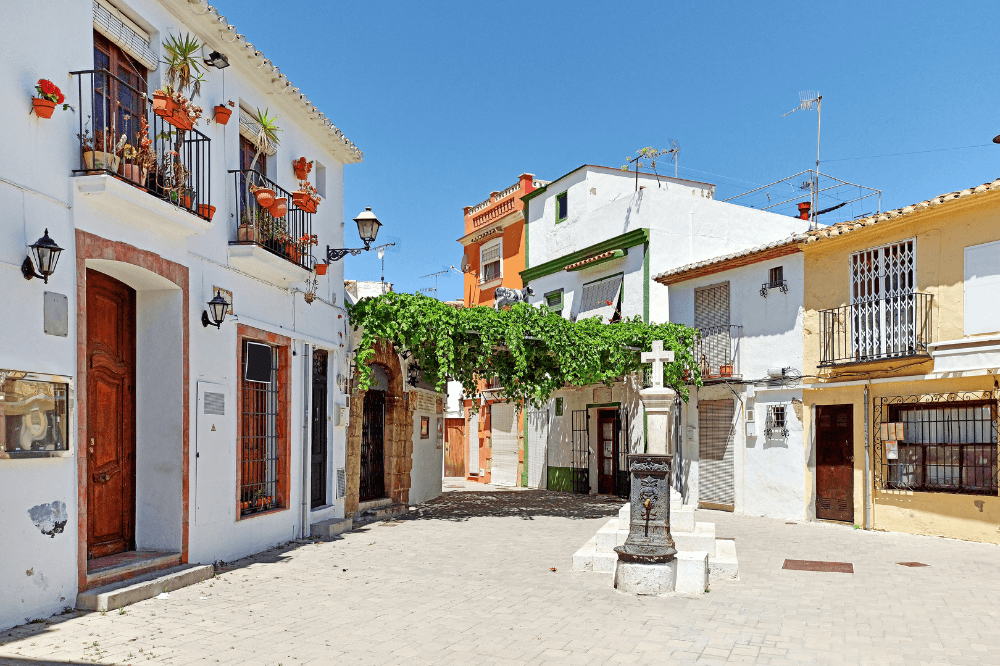
The quality of the water is subject to strict health controls, ensuring you can drink it without concern in virtually any city or town. This is a significant advantage, as it allows you to stay hydrated economically and sustainably during your trip, without needing to constantly buy bottled water.
9. Avoid the Hottest Hours of the Day
During summer, the middle hours of the day (approximately between 1:00 and 5:00 pm) are usually the hottest across most of the country.
Exposing yourself directly to the sun during this time can be exhausting and increase the risk of sunstroke or dehydration. It is highly recommended to plan outdoor activities, like monument visits, city walks, or excursions, outside of this time slot.
10. Learn a Bit of Spanish
Although in major tourist areas and big cities you’ll find people who speak English, especially in hotels and attractions, learning a few basic phrases in Spanish can significantly enrich your travel experience.
A simple “Hola” (Hello), “Gracias” (Thank you), “Por favor” (Please), or “¿Cuánto cuesta?” (How much does it cost?) can open doors and show respect for the local culture. People usually appreciate the effort, even if your pronunciation isn’t perfect.
11. Cool Down with a Good Salmorejo or Gazpacho
When the heat strikes, especially in the southern regions, nothing is more comforting and refreshing than tasting salmorejo or gazpacho.
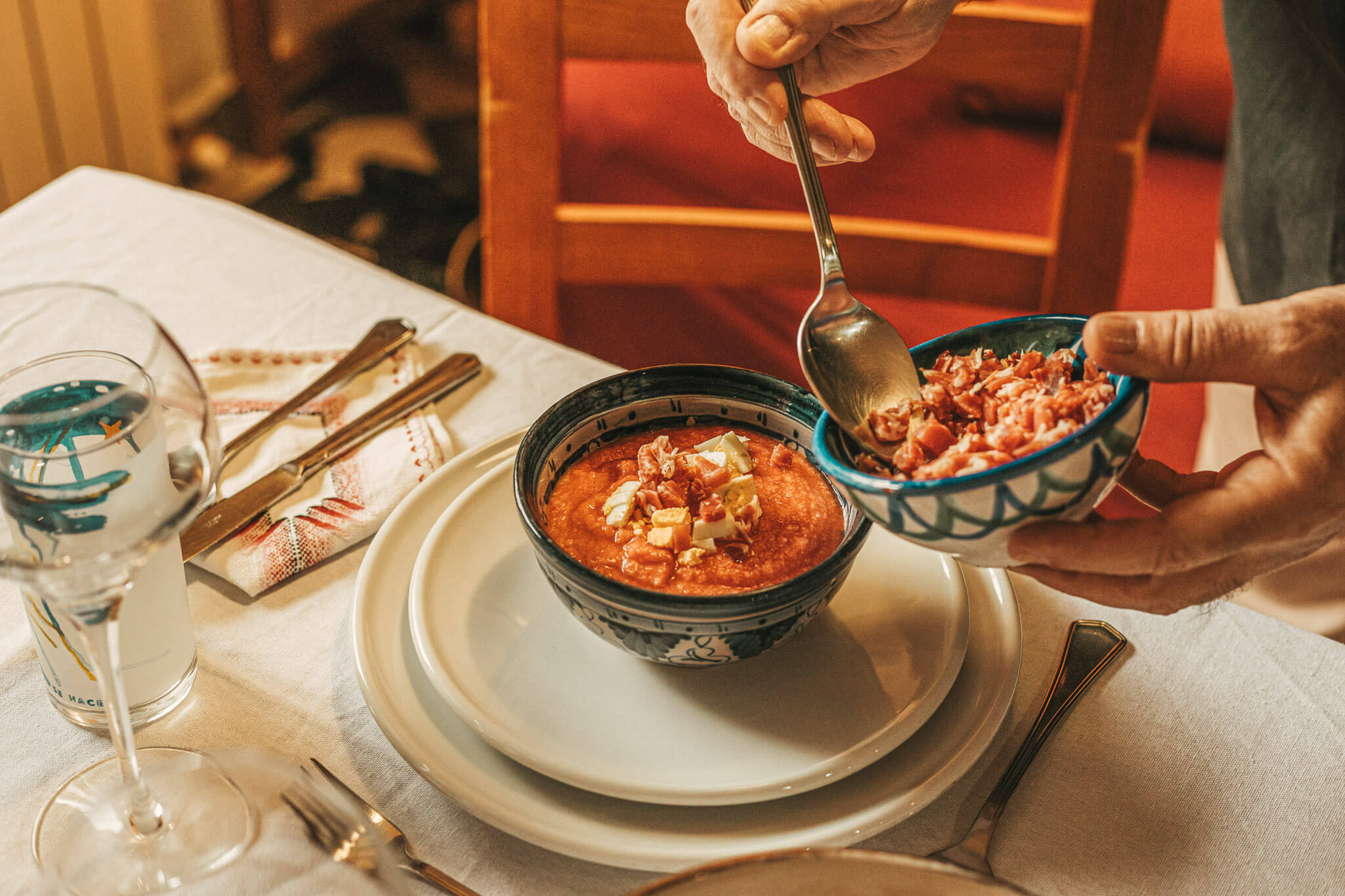
These cold soups, typical of Andalusian cuisine, are a delicious way to beat the heat while savoring local flavors.
Made with tomato, pepper, cucumber, garlic, olive oil, and bread, they are a combination of freshness and nutrients that will help keep you hydrated.
12. Essentials for Your Backpack
When preparing your backpack to explore this destination, especially in summer, consider including some essentials that will make your daily outings much more comfortable.
A good start is a reusable water bottle, since tap water is drinkable in most places and refilling it helps keep you hydrated and reduce plastic use.
Likewise, sunglasses, a hat or cap, and high SPF sunscreen are essential to protect yourself from intense sun exposure, which can be strong even on cloudy days.
13. North or South?
When planning your summer getaway to Spain, one of the key decisions will be choosing between the north and the south.
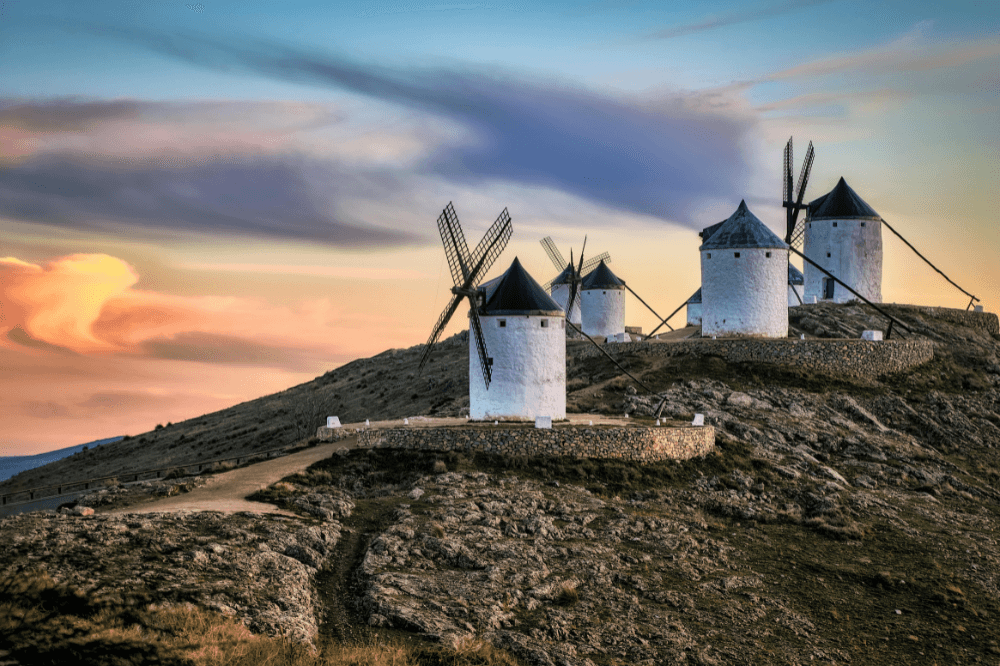
Both offer very different experiences, and your choice will largely depend on your personal preferences and the type of climate you’re looking for.
The south, with regions like Andalusia, Murcia, or the Valencian Community, is synonymous with intense sun, wide beaches, a rich cultural heritage with Arab influences, and vibrant nightlife.
However, temperatures here are usually very high, which makes it ideal for those wanting to enjoy the sea and Mediterranean atmosphere, but also calls for more heat precautions.
On the other hand, the north, which includes regions like Galicia, Asturias, Cantabria, or the Basque Country has a cooler and greener climate, with mountainous landscapes, rugged coastlines, and exquisite cuisine focused on seafood and produce.
It’s an excellent option for those wanting to escape the extreme southern heat, go hiking, or explore cities with different historical charm and a culture more tied to the Atlantic.
14. Avoid Tourist Traps
To avoid disappointment, it’s wise to be aware of places often designed mainly for tourists, which tend to offer inflated prices or lower-quality products.
This includes restaurants right in front of popular attractions that often lack the culinary authenticity of less visible establishments, or souvenir shops with generic items you can find anywhere.
Always look for a balance between convenience and authenticity, prioritizing the latter whenever possible.
15. In Case of Emergency, Call 112
We hope your trip goes smoothly, but it’s important to know what to do in case of emergency. 112 is the universal emergency number in Spain, and it connects you directly with police, fire services, and medical assistance.
You can dial it from any landline or mobile phone, free of charge and without any prefix, even if you don’t have coverage or credit. It’s the number to remember for any critical situation requiring immediate help.
16. Basic Courtesy Rules
When visiting this country, knowing and applying a few basic etiquette rules can greatly improve your interactions with locals and show respect for their culture.
A simple “Hola” or “Buenos días/tardes” when entering a shop or café, and a “Gracias” or “Por favor” when ordering something, are gestures that are much appreciated.
Making eye contact during conversations is common and shows attentiveness, while being too loud in public spaces, especially at night, might be seen as rude.
17. Greet When You Arrive and Say Goodbye When You Leave
A courtesy rule that can make a big difference in your daily interactions here is the simple act of greeting when entering a place and saying goodbye when leaving.
When entering a small shop, bar, or even getting into a shared elevator, a “Hola” or “Buenos días/tardes” to those present is common and well received.
Likewise, when leaving a place, a “Adiós” or “Hasta luego” to the staff or people you interacted with is a sign of good manners.
These small details not only show that you’re a considerate person but can also encourage friendlier and warmer treatment from locals.
18. Avoid Eating on the Street
Although eating while strolling through picturesque streets might sound appealing, in most cities and towns in this country it’s not a common practice, and in some places, it’s even frowned upon.
Food is valued as a social experience and enjoyed at leisure, whether in a restaurant, a tapas bar, or at home.
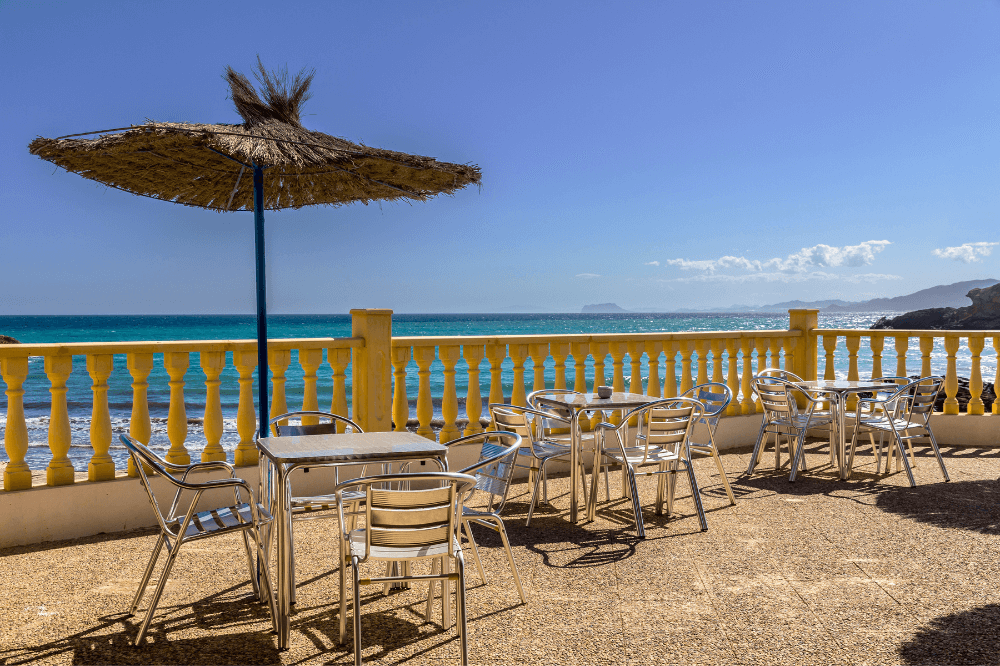
Eating or drinking while walking through busy areas, especially if it’s a full meal, can be seen as disrespectful or a less refined habit.
19. Regional Languages
It’s important to know that in addition to Spanish (or Castilian), there are several co-official languages in different autonomous communities.
These languages have official status and are used in administration, education, and media in their respective regions.
For example, in Catalonia and the Balearic Islands, Catalan is spoken, which is closely related to Valencian, spoken in the Valencian Community.
In Galicia, you’ll find Galician, a language with common roots with Portuguese, and in the Basque Country and Navarre, Basque (Euskera) is the local language, one of the oldest in Europe, with no known linguistic relatives.
Although Spanish is understood and spoken throughout the country, learning a few basic phrases in the local language of the region you visit, like “bon dia” (good morning in Catalan/Galician) or “kaixo” (hello in Basque),will be highly appreciated by residents.
You don’t need to become an expert, but simply showing interest in their culture and language can open doors and enrich your travel experience.
Experience Authentic Local Gastronomy with Sazón The Folk Cook
We hope these tips are very useful in planning your summer adventure in this fascinating country.
But if there’s one way to truly immerse yourself in the heart of the culture, it’s through its gastronomy. And there’s no better way to do that than by sharing a meal with those who know it best.
With Sazón The Folk Cook, you have the unique opportunity to live a genuine culinary experience in the homes of those who keep tradition alive.
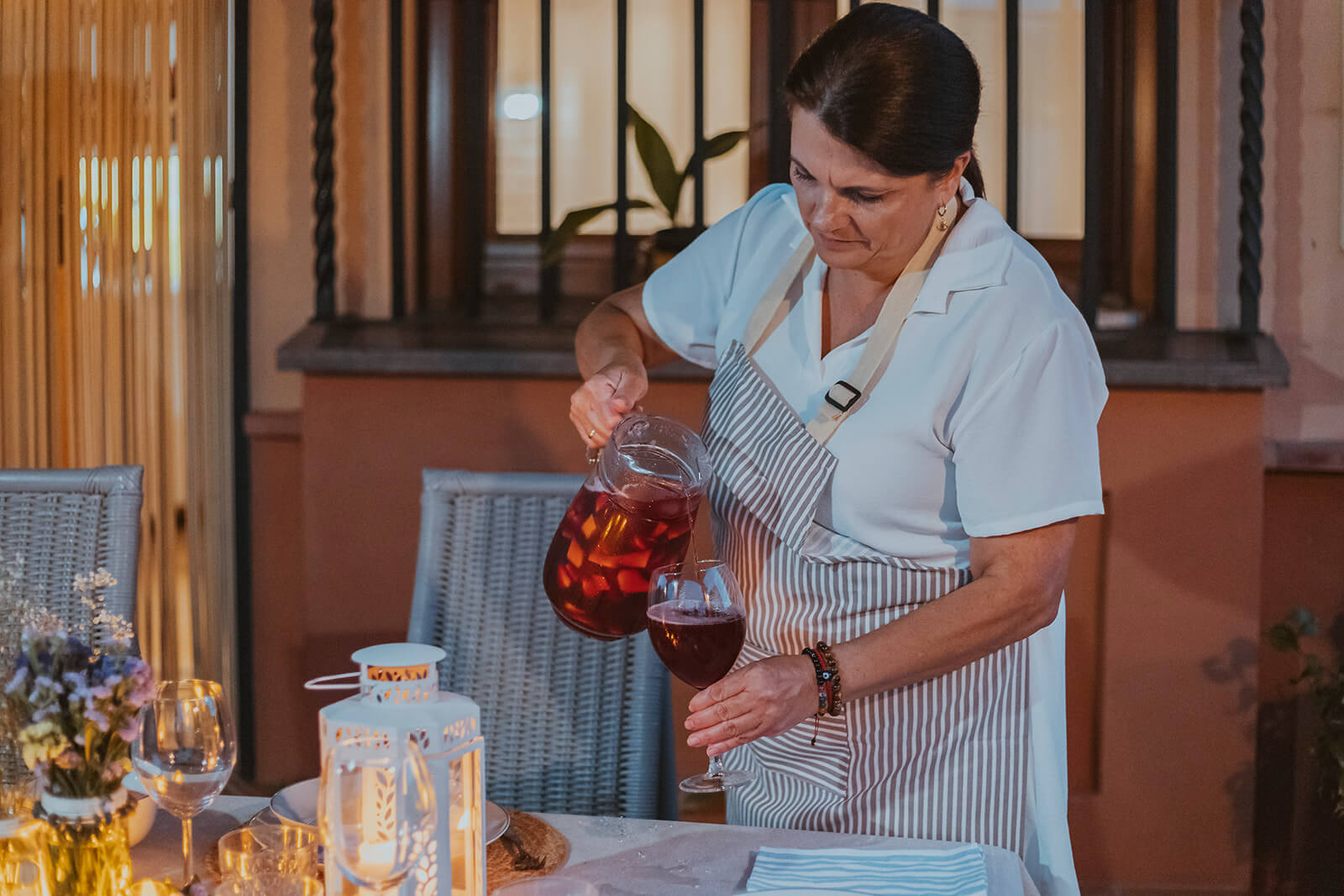
An invitation to enjoy authentic flavors, prepared by people who are passionate about their culinary heritage.
Book your experience with a local cook now, and transform your trip into a feast of stories, aromas, and flavors that only a shared table can offer.
Make your time in this country a truly delicious memory!

